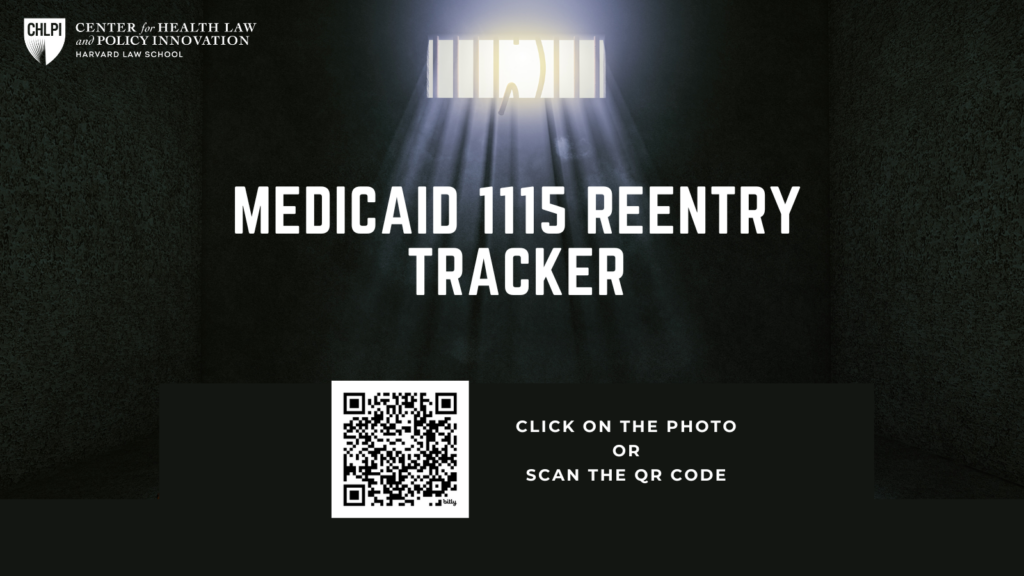As people reenter their community from incarceration, they face a litany of complex obstacles to establishing stable healthcare access—a trend which contributes to high rates of recidivism, increased risk of death in the weeks following release, and health disparities for both individuals and the communities they return to. In recent years federal and state policymakers have taken aim at reducing the stark health outcomes that stem from those obstacles by expanding Medicaid access and engaging in systems change to support and encourage cross-collaboration among reentry stakeholders. Chief among those initiatives is the use of Section 1115 of the Social Security Act, often referred to as 1115 Waivers, which allow states to pursue a partial waiver of certain federal Medicaid requirements. In 2023 the Centers for Medicare and Medicaid Services approved a first-of-its-kind 1115 waiver to allow Medicaid coverage for people nearing release from a state correctional facility, and soon after CMS released guidance laying out a comprehensive framework for other states to pursue similar initiatives. Over half the United States are now in the midst of developing and implementing Reentry Waivers, and corresponding increases in funding along with interrelated efforts in Medicare and the Children’s Health Insurance Program will soon be under way. In conjunction Reentry Waivers and the increased focus on reentry generally signals a new but meaningful shift in the potential to disrupt the health impacts of mass incarceration, and support the health of communities disproportionately impacted by the criminal legal system.
Our Approach
Alongside our community partners, the Center for Health Law and Policy Innovation advocates for the inclusion of community-led organizations and people with lived experience of incarceration into the design and implementation of reentry policymaking. In addition, we advocate for and support the prioritization of hepatitis C and HIV as key components in addressing poor health outcomes for people who have been incarcerated by encouraging the implementation of relevant quality metrics, comprehensive coverage for prevention and treatment, and increased support for providers and organizations with ties to communities disproportionately impacted by incarceration.
Tracking Pre-Release Medicaid Coverage: Medicaid 1115 Reentry Waivers’ Potential Impact on HIV and HCV
The Center for Health Law and Policy Innovation is tracking the release of approved and pending 1115 waivers for pre-release Medicaid coverage in carceral facilities, and analyzing which states’ waivers will expand access to HIV and hepatitis C treatment and prevention. To date, 11 states have been approved to pursue these landmark waivers, and at least 13 more are pending approval from the Centers for Medicare and Medicaid Services.
Our tracker breaks down these complex waivers into three key focus areas: (1) Waiver Status, Primary Sources, and Key Deadlines, (2) The Scope of the Approved Waiver and Covered Services, and (3) Coverage of HIV and Hepatitis C Treatment and Prevention. Click below to see if your state is prioritizing two pervasive and often undertreated conditions impacting people involved in the criminal legal system.

Last Updated: September 19, 2024
Disclosure: The tracker utilizes publicly available information gathered from federal and state Medicaid websites. If you have questions, or you would like to report changes or updates to your state’s 1115 waiver, please contact Staff Attorney, John Card directly at jcard@law.harvard.edu.